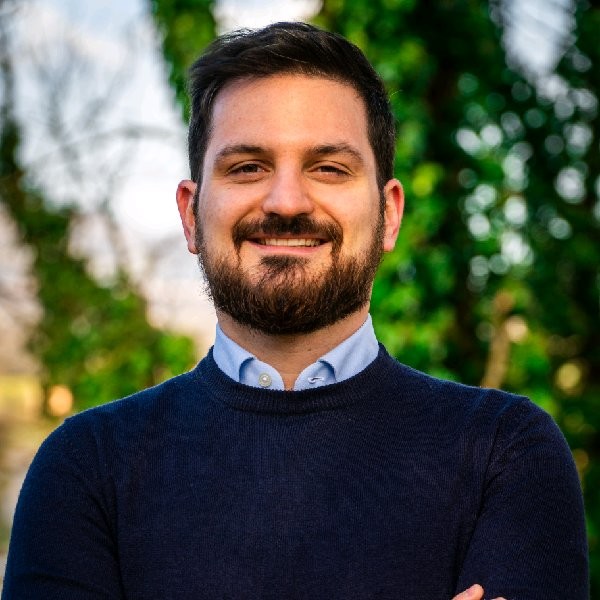Professor Riccardo Patriarca
Riccardo Patriarca, Ph.D. is Postdoctoral Researcher at Sapienza Università Di Roma, Faculty of Civil and Industrial Engineering, the Department of Mechanical and Aerospace Engineering, since March 2018. His main research interests focus on resilience engineering and risk and safety management for complex socio-technical systems.
In February 2019, Riccardo was listed in the Forbes 30 under 30 list, in the category Science and Healthcare. In April 2019, he was nominated as one of the 100 Italian young leaders of future in the category Science by Forbes Italia.
In July 2018, he got the National Academic Qualification as Associate Professor (Abilitazione Scientifica Nazionale) in Industrial Systems Engineering
He was awarded in 2017 the Young Talent in Resilience Engineering by the Resilience Engineering Association (REA). He also received a joint award in 2016 from the International Association for Advancement of Space Safety (IAASS) and the Space Generation Advisory Council (SGAC). He received an award in 2016 from the European Safety and Reliability Association (ESRA), and in 2015 from the SESAR Joint Undertaking as one of the three best young researchers in the Air Traffic Management domain.
Riccardo is currently researching spare parts management and logistics, in relation to reliability and maintainability engineering. His research activities mainly relate to industrial plants, the Air Traffic Management system, aviation, and healthcare practices. He is the coordinator of the myFRAM project, an open IT tool developed to support the applicability of non-linear analysis for complex socio-technical systems based on the Functional Resonance Analysis Method (FRAM).
His research activities, documented in a number of journal papers and conference proceedings, are conducted in collaboration with international universities and companies, among others are Lund University (Sweden), University of Rio Grande do Sul (Brasil), EUROCONTROL, ENAV s.p.a. (the Italian ANSP), and Qantas Airline (Australia).
Riccardo authored and coauthored about 40 manuscripts in peer-reviewed journals and international conference proceedings. He acts as a reviewer for more than 20 journals in the area of engineering, decision sciences, business, management, and accounting. Among others are Reliability Engineering & System Safety; Safety Science; PLOS One, Sustainability, and Entropy.
He is Editor of the journal Cogent Engineering (Taylor & Francis), and is a member of the editorial board of the Journal of Safety Studies (Macrothink). Currently he is guest editor for Complexity (Hindawi) and Sustainability (MDPI).
Since 2014, he is Assistant Lecturer for the course Industrial Plants, Operations Management, and Quality Management (2015) for the BSc and MSc in Management Engineering and Mechanical Engineering at Sapienza.
Since 2015, Riccardo acts as Lecturer for the Master’s Logistics and Communications Services for complex systems for the Faculty of Information Engineering, Informatics, and Statistics of Sapienza University.
Since 2016, he also has been guest lecturer at Lund University for the BSc and MSc in the risk engineering area and since 2018 he is adjunct professor of Industrial Plants in the BSc in Mechanical Engineering at Sapienza.
Riccardo grew up in Arce, a small village in southern Lazio in Italy, and he attended classical studies in Sora, due to his passionate interest in history, and archeology. Soon afterwards, he earned his Bachelor’s Degree of Science in Aerospace Engineering in 2011 and his Master’s Degree of Science with full marks in Aeronautical Engineering in March 2014, both at Sapienza University of Rome.
He earned the title of Doctor Europaeus (Ph.D.) in Industrial and Management Engineering, after a three-year research project (2014–2017) concluded defending the thesis: Developing risk and safety management methods for complex socio-technical systems: From Newtonian reasoning to Resilience Engineering.
During his Ph.D., Riccardo researched jointly with the Lund University Division of risk management and societal safety, about resilience for complex socio-technical systems, both at a theoretical epistemological level and at an operational level, with implications for aircraft cockpit interactions, and maritime operations.
Soon after defending his Ph.D. thesis, he worked as a Ph.D. intern at Eurocontrol Headquarters in Brussels (Belgium) for the Network Management Directorate (Network Operations Management — Safety Unit) about modeling airspace safety performance.
Read his publications and work at Publons, ResearchGate, and Google Scholar. Visit his LinkedIn profile and his Academia profile. Read his dblp page and his Forbes page. Follow him on Facebook and X.
